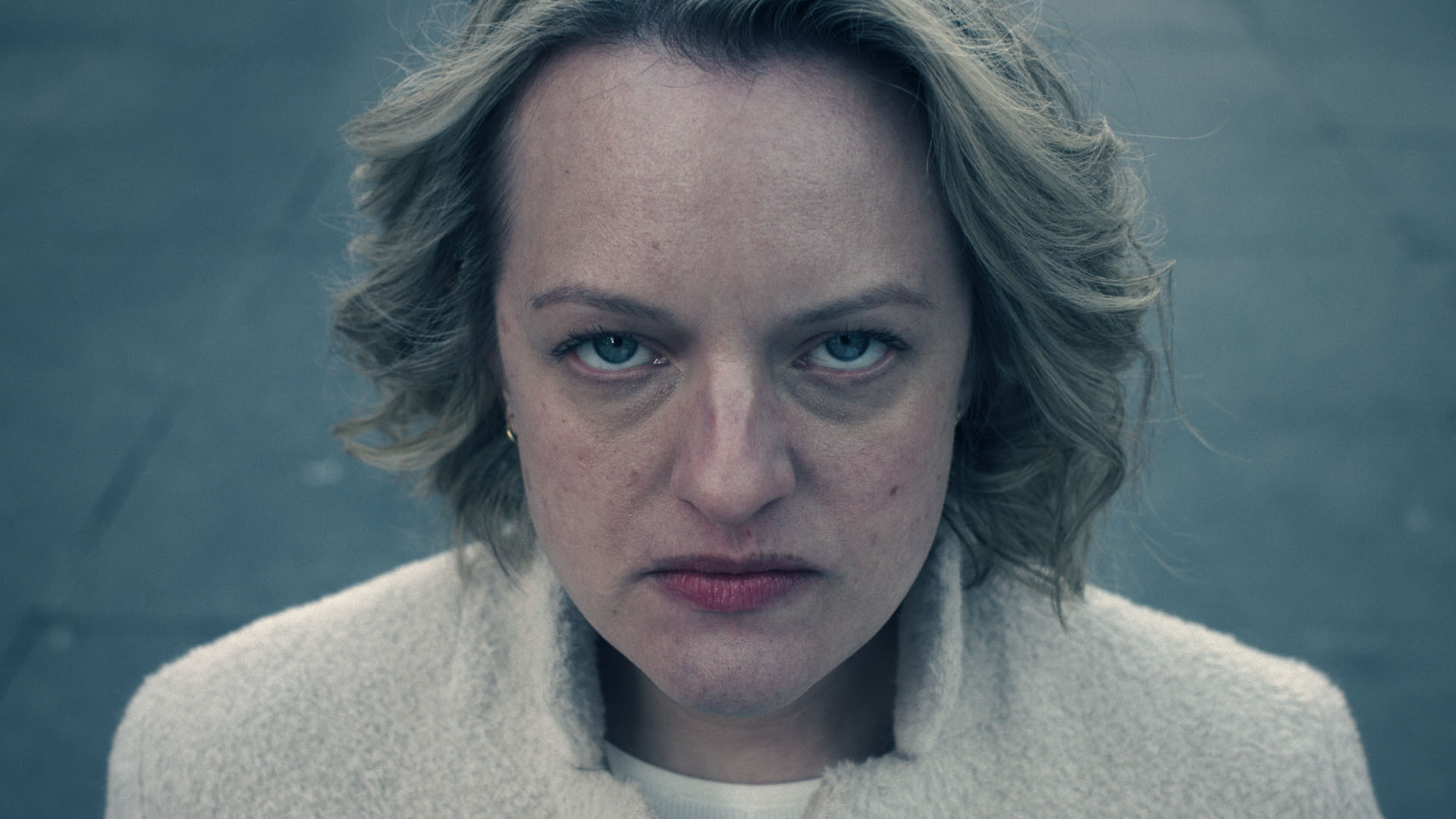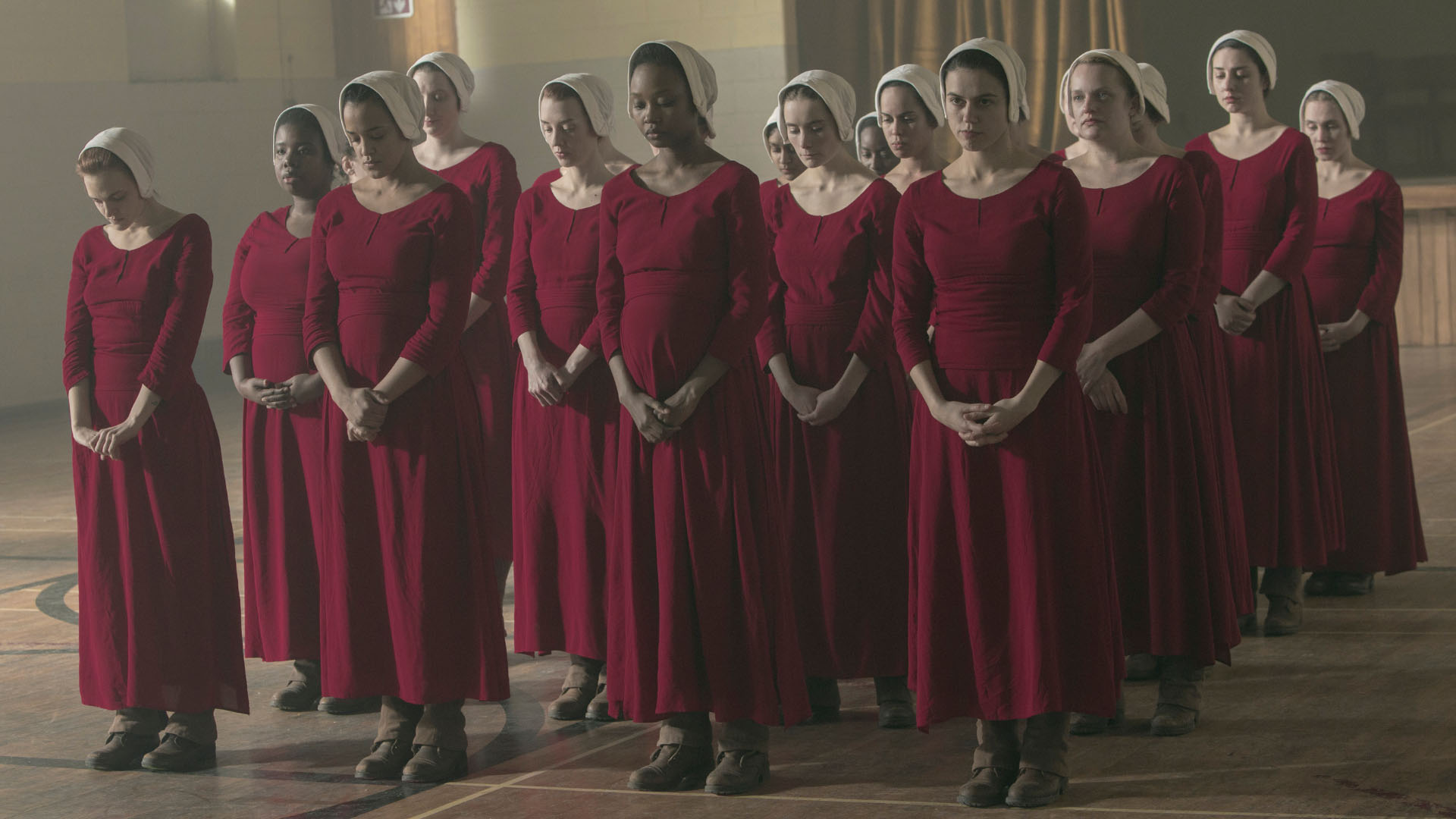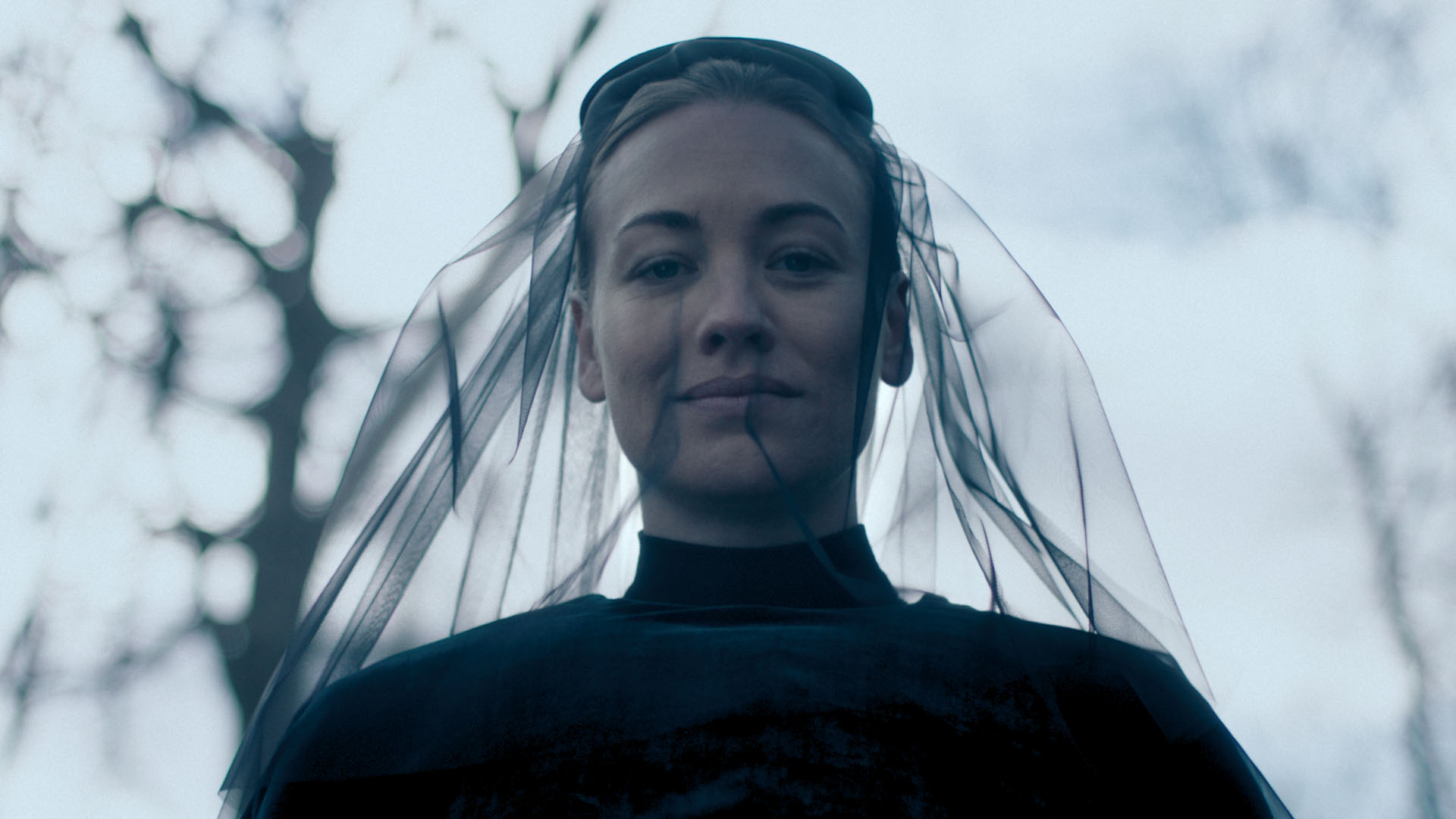Five dystopian seasons in, here’s why I’m still watching The Handmaid’s Tale
Through it all, the constant hope that Elizabeth Moss’s June gets some sort of retribution.

The Handmaid’s Tale – streaming on Neon – has consistently built a convincing world for people to immerse and scare themselves with over the last few years. Through it all has been the constant hope that Elizabeth Moss’s June gets some sort of retribution for everything she’s endured. Laumata Lauano talks about what keeps her engaged in the show and why this season’s got her the most excited.
After watching June suffer for four seasons straight, and let’s be honest she’s still suffering despite making it out of Gilead, it was good to see her get some sort of comeuppance at the end of season four.
Unfortunately, and perhaps unsurprisingly, this doesn’t mean everything’s all good now. June still continues her fight to find her daughter Hannah (Jordana Blake) and is still suffering vivid PTSD flashbacks. But also as Gilead’s influence threatens to expand into Canada, you almost get the sense that there’s no real escape.
This further exacerbates the inner turmoil that continues to plague June, this undiagnosed PTSD is all but debilitating and I really don’t get how her husband can’t see it. I get that Luke (O-T Fagbenle) and friend Moira (Samira Wiley) aren’t psychologists but how have they managed to miss it entirely? Someone who’s just been through what June has, what Moira went through too, can’t just go back to living a normal life like nothing happened. It’s touched upon when June first gets to Canada, especially after a scene that made Twitter explode, but beyond being “fucked up” there doesn’t seem to be a real approach to diagnosing and getting June any real help beyond support groups.
These are characters that we have emotionally invested in over the years and can’t help but care about—so I can barely stop myself from almost yelling at the screen for someone to SEE that she’s clearly not okay. The creators really capitalise on the connections to the characters—it’s almost like they’re testing to see how much we hurt when the characters do. I can’t say that it ever feels manipulative or cliched, though, and must say that it speaks to quality filmmaking just how much of the show still feels new and on the nose despite all the time that has passed since we first met June Osborne (or Offred) some years ago.

I often find myself trying to keep in mind that there are no heroes in The Handmaid’s Tale. If there is one, she is a tragic hero, and we all know what happens to heroes in tragedies. She’s fatally flawed, and this has come out most in her search for revenge—but can you blame her? We have seen and felt all of her pain, vicariously living in Gilead through her. It was through her that we witnessed the true horror of the regime, through her we saw firsthand the injustice of such a world and we quickly grew to sympathise with, respect, and love her for her boldness, resilience and resourcefulness.
She’s flawed but also just doing what she needs to do in order to survive, both externally and internally. What happened to June inside Gilead is enough to break a person and the fact that she escaped physically doesn’t mean, as we have seen, she’s escaped mentally. And of course, the biggest issue at hand for her is that her daughter is still stuck in Gilead—as are many innocent women and children that need to be freed from the regime’s oppression.
Because June is not the only Handmaid, nor are hers or the handmaids the only ones with tales. There’s another character I had become so very invested in, June’s foil—Fred’s wife, now widow, former conservative activist and writer Serena Waterford (Yvonne Strahovski).
Serena, currently mourning the death of her husband whilst pregnant with his baby, is attempting to secure her safe release from political imprisonment. Like many of the characters on the show, Serena is multifaceted but she’s also a calculated, manipulative foe.

And honestly probably one of the most complex characters of the show—one that you can hate with a passion but then also find yourself feeling for because the show finds ways to humanise her. Serena is deeply layered, strangely compelling and almost completely unpredictable, warm one minute and ice cold the next. Strahovski delivers a spellbinding performance—it’s because of her and the writers’ skills that sympathy can be pulled from the audience.
The almost visible power struggle inside of Serena as she comes to terms with her fluctuating roles, both inside her home as well as outside and her loss of status to the men around her, is a wonder to watch. Strahovski leans into Serena’s villainous traits and executes the most stone-cold demeanor, but can turn heel and really throw us off guard sometimes when it comes to Nichole’s or June’s plights—especially now as an expectant mother, something she had never in a million years thought would come to pass. Some may not tolerate Serena’s softer side in light of her past and current evil-doings, but it’s what makes her such a polarising yet powerful character.
So I’m truly excited for what this new season will bring in terms of June and Serena’s paths. One is on the warpath, winning a huge battle for herself most recently and the other is poised to counterstrike (and if you’ve started watching season five you know she already has).
There is no doubt that June and Serena’s paths will cross again and when it does you’ll want to be there for it. While I’m not a fan of pitting women up against each other I do know that this has been a long time coming. Even if you’ve dropped off in the last couple of seasons surely this is something you’ll tune back in for. Because June has shown she’s more than capable of survival—but does she have what it takes to take Serena on? More than just a Gilead wife, Serena now has more to live for as a pregnant and expectant mother. Something which I know from experience would make someone a formidable force to be reckoned with indeed.


















